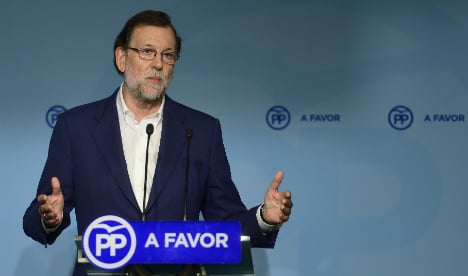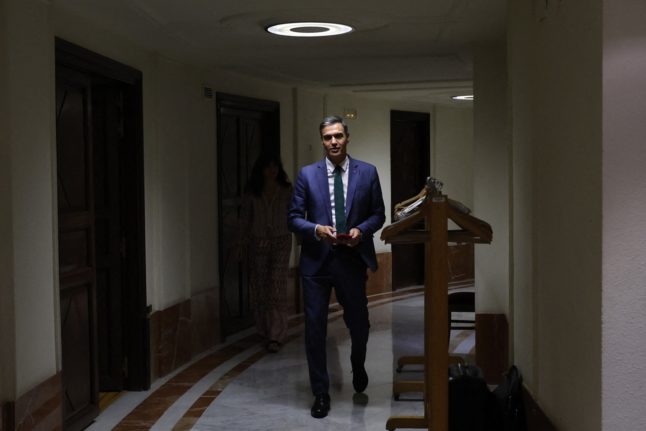The move is a first, tentative step towards unblocking the eight-month-long political paralysis that has gripped Spain as squabbling parties remain unable to reach any kind of agreement on a government following two inconclusive general elections.
But it still does not give acting Prime Minister Mariano Rajoy's conservative party enough support to push a minority government through the necessary parliamentary vote of confidence as others refuse as yet to back it, raising the possibility of yet more elections.
The PP's executive committee “authorised me and party leaders to negotiate with Ciudadanos”, Rajoy told reporters.
The committee's green light implies that it accepted the six conditions set by Ciudadanos last week, but Rajoy refused to be drawn into this, saying these had not been brought up during the two-hour-long committee meeting.
The conditions include anti-corruption measures such as creating a parliamentary commission to investigate one of the PP's most high-profile scandals.
The case centres around former PP treasurer Luis Barcenas, who on top of alleged embezzlement also reportedly ran a slush fund for the party and says Rajoy knew about it, although the acting prime minister denies this.
Corruption was a big issue in campaigns before elections in December and again in June but this did not stop the PP from coming first each time, though without an absolute majority.
The party won 137 parliamentary seats out of 350 in June's elections, and Rajoy has since been trying to garner support from his rivals to form a coalition or minority government, which he will have to push through a vote of confidence.
In order to do so, he needs a simple majority.
But even if Ciudadanos, which gained 32 seats in June elections, accepts to back the PP after negotiations, Rajoy will still not have a majority to push his government plans through.
He also needs the support of the Socialists, his traditional rivals, but they refuse to back him.
“We will vote against” a Rajoy-led government, Socialist party chief Pedro Sanchez told reporters.
“There can only be regeneration if Rajoy is no longer prime minister.”



 Please whitelist us to continue reading.
Please whitelist us to continue reading.
Member comments